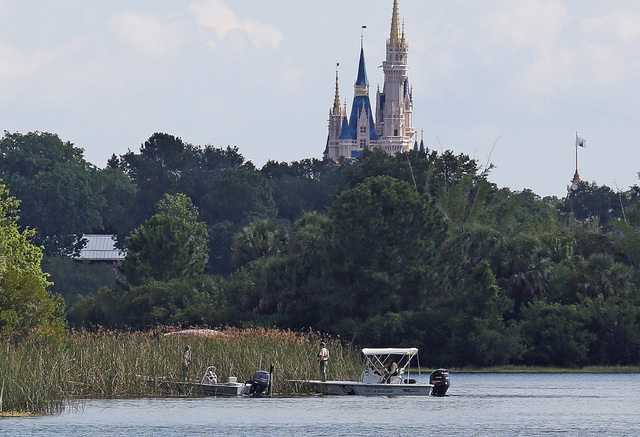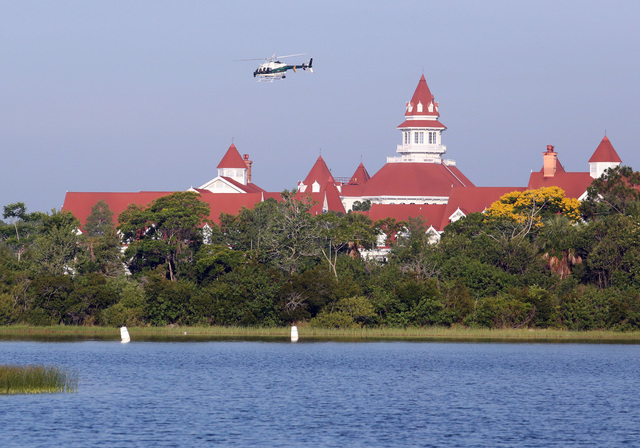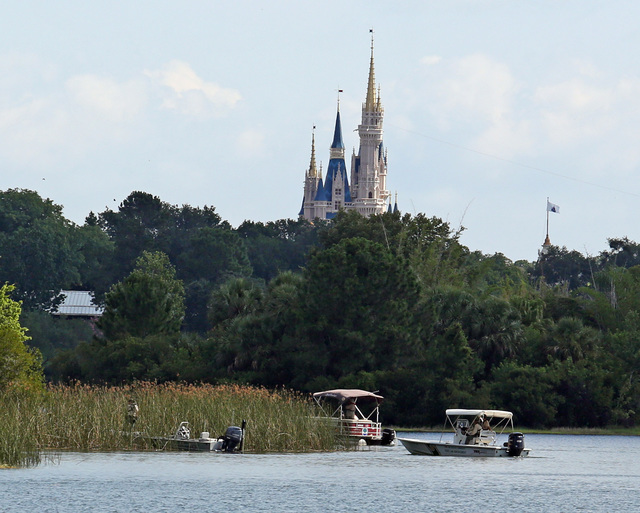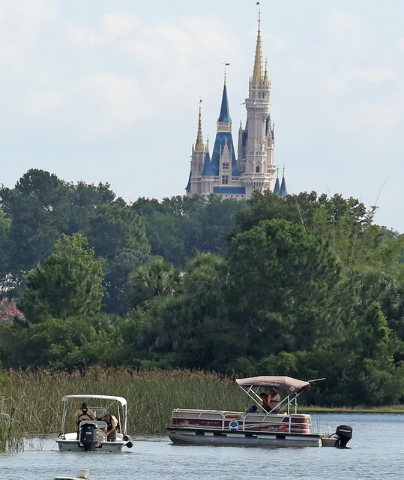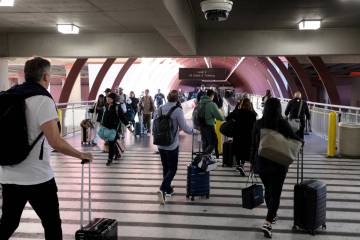Firefighters at Disney World reprimanded for feeding gators prior to deadly attack
It was not unusual for the two alligators to lurk in the pond behind Fire Station 3 in Reedy Creek, Fla. Neither reptile was full-grown — one was a young juvenile and the other was about 4 or 5 feet long, whereas an adult male American alligator can stretch to about 11 feet.
Perhaps it was the gators’ smallish size. Perhaps it was ignorance about the dangers of feeding alligators. Whatever the reason, two Reedy Creek firefighters were spotted giving the predators food.
Reedy Creek is the tax district, the equivalent of a county government, for Walt Disney World Resort. Fire Station 3 sits just outside the Magic Kingdom, to the west of Splash Mountain. It is about half a mile from Seven Seas Lagoon, which curves around Disney’s Grand Floridian Resort and Spa.
There, two months after the firefighters were admonished for feeding the animals, a gator — thought to be between 4 and 7 feet long — fatally attacked a boy wading in the lagoon.
Claude Rogers, a communications captain, had warned that staff needed to stop giving food to the animals, in an email obtained by the Orlando Sentinel.
“It was brought to our attention firefighters are feeding the alligators (this is illegal),” Rogers wrote on April 20. “The communicators have found [one alligator] by the station, near the dumpster, and where they park their cars. As you can imagine this is making the communicators nervous because they are fearful of walking to their car and their leg becoming dinner. We have notified Animal Control to remove the alligator. In the interim could you ask your crews to stop feeding the gator.”
This was on the heels of another email from Dan Lewis, a Fire Station 3 dispatcher, who complained that the animals were scampering into the parking lot. “WE are the ones who have to walk in that parking lot every day and in the dark,” said Lewis in an email, per the Sentinel. “They are not docile gators, they are mean and they are out looking for food because people are feeding them. It’s getting uncomfortable,” he wrote.
Two months later, for the first time in Disney World history — and a rare event in all of Florida — an alligator killed a child, a Nebraskan boy visiting with his family.
On a Tuesday night in June, an alligator ambushed a 2-year-old boy, Lane Graves, who was wading in the artificial lagoon very close to shore. Matt Graves, Lane’s father, attempted to save his son from the animal, believed to be between 4 and 7 feet long. But it succeeded in pulling Lane into the dark water. During the attempted rescue in the lagoon, Matt was bitten by a second alligator, requiring antibiotics and stitches.
In the wake of the tragedy, Disney installed warning signs about the presence of alligators and snakes, and removed crocodilian characters. Lane’s parents sought privacy.
It is not apparent if the firefighter feedings in the station pond, which is an isolated body of water, are connected to the June attack. But avoiding attacks like this are one reason it is illegal to feed alligators in Florida. “No person shall intentionally feed, or entice with feed, any crocodilian unless held in captivity under a permit issued by the Fish and Wildlife Conservation Commission …,” according to a Florida rule.
Crocodilians, which include alligators, are instinctively wary of people. When people feed gators, however, the animals may lose their fear of humans. So-called nuisance gators can in turn become aggressive, including biting off the hand that feeds them. Throughout Florida, environmental activists warn that feeding wild gators, particularly as a tourist attraction, has become too common.
Should an alligator be spotted on park premises, Disney World told the AP in June its policy was to relocate small gators and call in a licensed trapper for larger animals.
In an interview with the Sentinel, John Classe, the district administrator for Reedy Creek, said that he did not know if the larger gator behind the fire station had been removed. But he was skeptical the fire station animal was the killer.
“The gator would have to travel across a couple roadways … to get over to the Seven Seas water body system, so it’s not likely,” he said.
A Disney representative said Wednesday she did not know if the larger alligator had been relocated, according to the Associated Press. Disney World’s security team, when contacted late Wednesday night by The Washington Post, declined to comment as the public relations department had gone home for the day.
RELATED
After alligator attack, Disney removes alligator and crocodile characters from its parks
Disney will add warning signs about alligators at Florida resort
Disney World limits fishing after alligator attack on toddler



